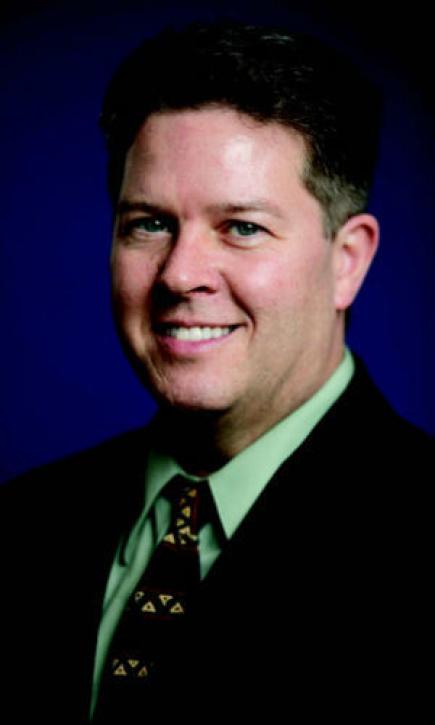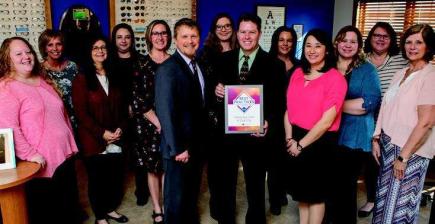
Big. Small. New. Established. CooperVision’s Best Practices are different, but they share a common goal: To deliver exceptional care to patients, even in the face of increasing competition and challenges. Established in 2015, Best Practices recognizes and celebrates the visionary, innovative, and unexpected aspects of care delivery that best serve patients and advance the profession. In this series of articles, CooperVision’s 2018 class of Best Practices honorees will be highlighted, one by one, to uncover and share some unique aspects of their practices that help them thrive—with hope that other practitioners may garner inspiration to bolster their own success.
This month, Jonathan Micetich, OD, of Family Eye Care Center in Coal City, IL, discusses how advanced technology can influence patients' perception of a practice, and why today's eye care professionals should view online refraction as an opportunity, not a threat.
Q: Tell us about Family Eye Care Center.
A: I was born and raised here in Coal City. After optometry school, I worked at a large opthalmology practice with 25 employees. I left to start Famly Eye Care Center so I could give people in this small, rural community access to exceptional care. We have become known for that. My mission is to offer comprehensive eye care for the whole family, from infants to the elderly. This includes contact lens fittings and management, emergency eye care, vision therapy, refractive surgery, pre- and post-operative care, and more.
Q: Is your practice technologically innovative?
A: Absolutely. We hear from patients all of the time, "You have such a cool office!" The rooms are filled with computer screens, and everything is electronic. All of our imaging equipment is linked together through the cloud, so we can show patients images we've taken only moments before on iPads right in front of them. We believe in investing in advanced technology boosts our credibility, because patient perception is that we are on the forefront of what's new.
Q: What do you see as the greatest challenge facing today's practitioners? How can you overcome it?
A: The greatest challenge is to believe in ourselves and prove the value of our knowledge and services. We have to embrace the changes coming our way, or we'll fail. New technology -- such as online refraction -- doesn't have to be a bad thing. Many doctors think it will be the end of eye exams, but it won't be. Instead, we have to view it as a tool. We have actually reached out to these companies to see how we might be able to integrate the technology into our practice. The way I see it, the problem with health care isn't insurance, it's access. And online vision exams can help. As optometrists, we are better than computers at refractions, but if we can reach patients this way and help guide them, I think it's worth exploring.
Q: How do you keep your staff motivated and engaged?
A: We set monthly goals for each department so we're continually pushing to be better. Our staff has input into what the goals are, giving them the opportunity to take ownership of their departments. They receive bonuses for hitting the goals and another bonus if they hit a "stretch goal". We also have an office book club; we find inspirational or educational books and buy copies for everyone. We read individually and meet to discuss what we learned and how to apply it. It is a great way to grow together and advance our practice.
Q: Why did you apply to the Best Practices Program?
A: I like the power behind it -- the drive to find doctors who strive to be more than mediocre. Many optometrists complain about how this is a dying profession, yet here we are, continuing to grow and innovate. It's a fantastic time to be an optometrist and it is a pleasure to be a part of a community colleagues who share that perspective. Best Practices gives us the opportunity to enagage with and learn from others, and figure out where we are headed next.

Congratulations to Dr. Micetich and Family Eye Care Center! This year's honorees will collaborate to tackle the most demanding challenges of contemporary optometric practice. For more information about the program, it's honorees (both current and past) and updates about how they are working together to advance the profession, visit www.eyecarebestpractices.com.



